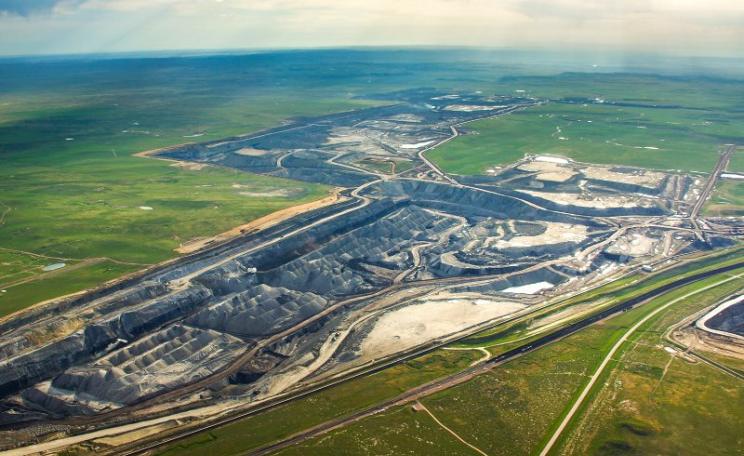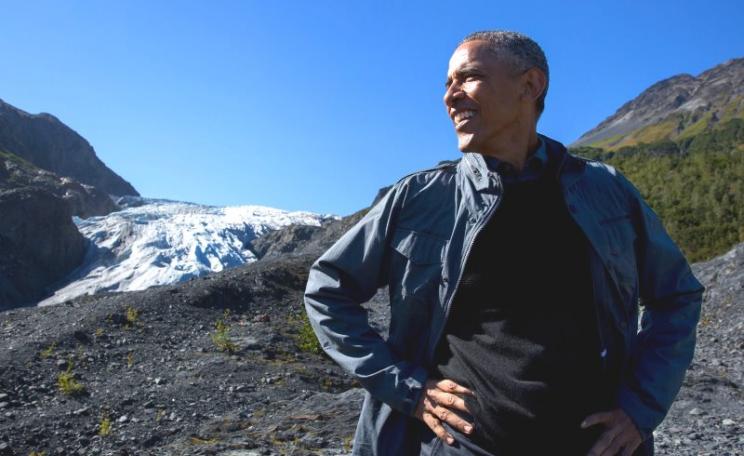An economy going renewable fast can show a fossil-mired economy - like the one President Trump hopes for - where the future lies. Mexico can match Trump's ignorance with inspiration.
What do you do if you are running out of oil, and your neighbour's President, who has plenty of oil, seems to hate you?
The answer is that you develop a renewable-powered economy as fast as you can.
That Mexico's proved oil reserves have declined by more than a third since 2013 is very bad news for the Mexican economy. The country will run dry in less than nine years if there are no new discoveries.
Better news is that going renewable fast, including in transport where most oil is used, is eminently feasible in the current world. A great global transition from fossil fuels to clean energy is under way, much faster than most people think.
As a consequence, those choosing to stay addicted to fossil fuels, even if they have a lot of them, are heading for trouble. This is because they are entering a time where much oil, gas and coal will end up un-needed, whether they like it or not.
An economy going renewable fast like the one I advocate for Mexico can show a fossil-mired economy - like the one President Trump hopes for - where the future lies. Mexico can match Trump's ignorance with inspiration.
An example: Mexico could build its own wall, made of solar panels. Such a wall, 6 metres high along the full length of the border, would generate well over 2 gigawatts of electricity. It would be a glittering money-maker, making a mockery of Trump's uneconomic coal mines and the fading debt factories that are his shale gas and shale oil regions.
Renewables outpacing fossil fuels across the world
Trump fears Mexican migrants, though they contribute so much to his economy. If he and his tribe stay in power and get their carbonaceous way, Mexico would be welcoming skilled American migrants, attracted to its clean-energy industries as America's shrivel.
A Mexico going renewable fast would be far from alone. Middle East oil producers are intent on the same. Dubai wants all roofs solar by 2030. Abu Dhabi intends to be exporting no more oil within fifty years.
An economy going renewable fast can show a fossil-mired economy - like the one President Trump hopes for - where the future lies. Mexico can match Trump's ignorance with inspiration.
City governments worldwide see what is coming. More than a thousand target 100% renewable power, some like Canberra as soon as 2020. So do more than 80 of the biggest global corporations, in Google's case as soon as 2017.
New global renewable power generation capacity exceeded new fossil fuel capacity for the second year running in 2016. This is because solar and wind are cheaper than any other form of generation in many markets already, sometimes by a wide margin.
Plunging battery and electric vehicle costs ensure this megatrend will spread, displacing fossil fuels not just in the electricity sector but in transport.
Going with the smart money ...
Investors increasingly understand what is coming, and are beginning to move their money accordingly.
Some big energy companies are seeing the writing on the wall. Much of the utility industry has already embarked on 180 degree U-turns in business model, switching from fossil-fuel supply to decentralised renewables.
The oil and gas industry, clocking up trillions in debt in dogged pursuit of their status quo, cannot be far behind. Even at $50 oil, the oil majors can't cover their costs. Some say American shale will help save them. But of the three main oil-producing shale belts, production has already peaked in two against industry expectations.
Meanwhile, the clean energy technologies race ahead, surprising even their most ardent supporters - like me - with the speed of their cost reductions. Some Silicon Valley gurus now expect that by 2030 all new energy will be solar and wind, and all new vehicles will be electric.
What we are witnessing is a total system change. It has happened before, in not much more than a decade, when the horseless carriage replaced the horse-drawn carriage.
And this system change is capable in principle of changing the face of civilisation: much for the better. Renewables have so many social advantages over fossil fuels, from the bottom of the energy ladder to the top.
Mexico can be a pace-setting leader in this global transition. In fact, it has no choice.
Dr Jeremy Leggett is a British green-energy entrepreneur, author and advocate who is founding director of Solarcentury, one of the most respected international solar companies; founder and Chairman of SolarAid, a charity set up with 5% of Solarcentury's annual profits; and Chairman of CarbonTracker, a financial sector think-tank warning of carbon fuel asset-stranding risk to the capital markets.
This article was originally published on on Energiahoy, with some editing from the Spanish.







